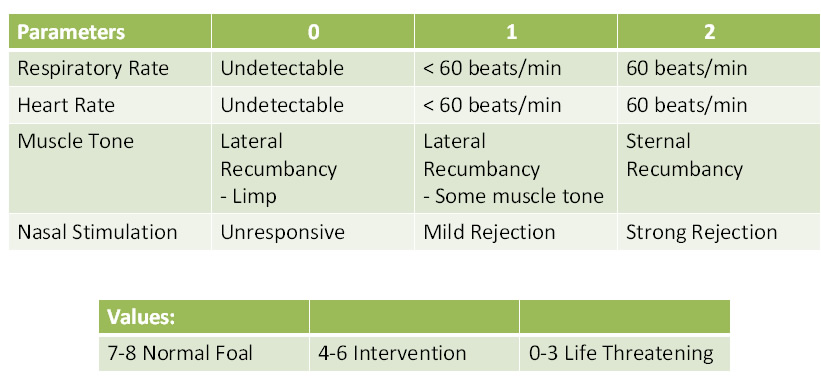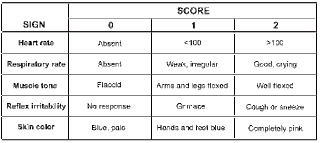


Some corresponding relative risk estimates are large (eg, four to seven for epilepsy or more than 20 for cerebral palsy), while others are modest (eg, 1.33 for impaired cognitive function). The association of Apgar score <7 at five minutes with increased risks of neurologic disability seems to persist many years postnatally. Dose-response patterns have been shown for the value of Apgar score and duration of low score and the outcomes of mortality and neurologic disability. The author concludes that the overall evidence shows consistent association of low Apgar scores with increased risks of neonatal and infant death and with neurologic disability, including cerebral palsy, epilepsy, and cognitive impairment. Apgar score was never intended for prediction of outcome beyond the immediate postnatal period however, since low scores correlate with prenatal and perinatal adversities, multiple studies have examined the relation between the value of Apgar score and duration of low (<7) Apgar score and subsequent death or neurologic disability. It has been used worldwide to evaluate infants’ condition immediately after birth, to determine their need for resuscitation, and to evaluate the effectiveness of resuscitation. Apgar score was devised with the aim to standardize the assessment of newborns.


 0 kommentar(er)
0 kommentar(er)
